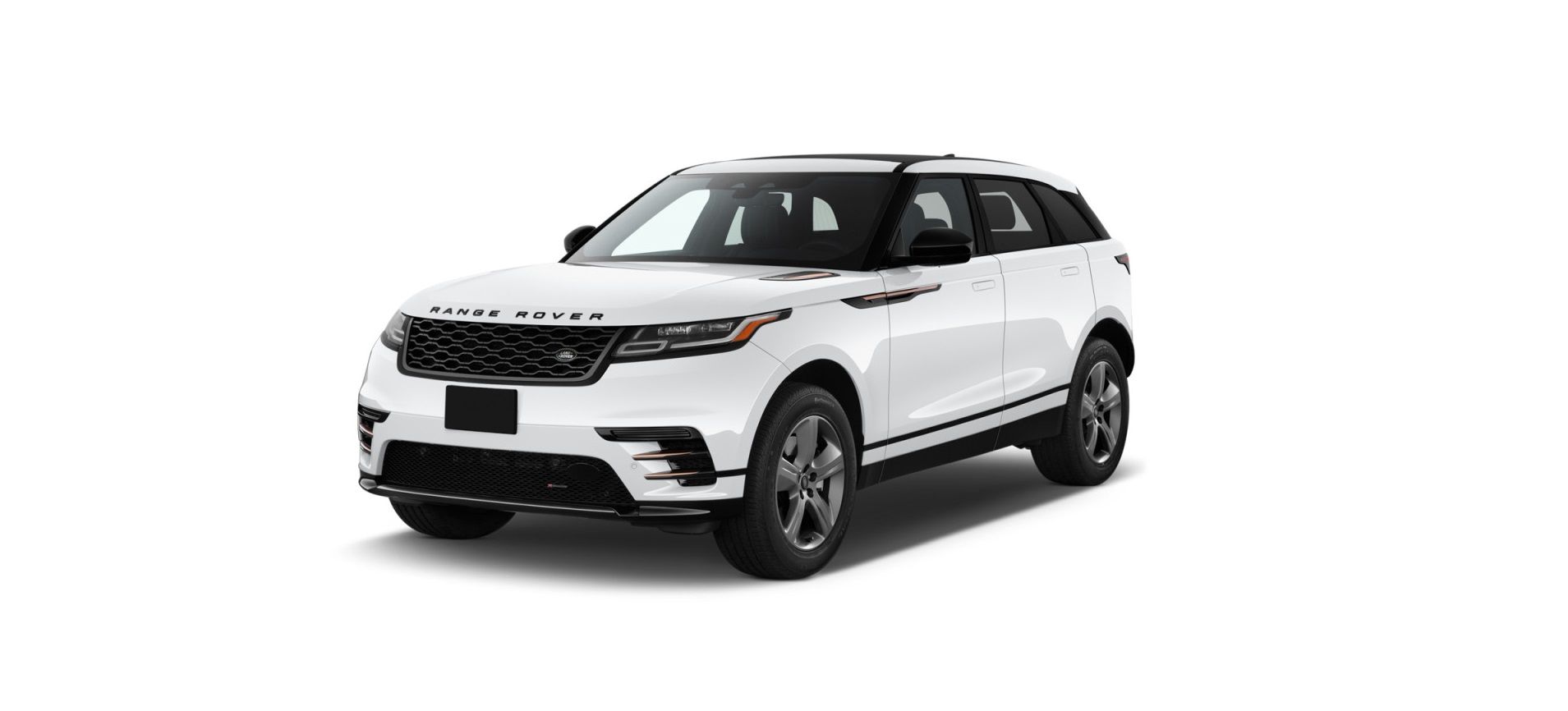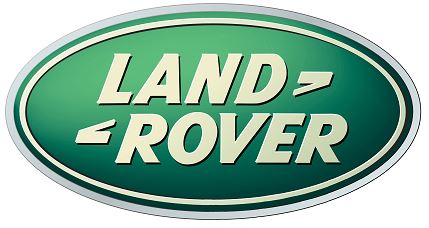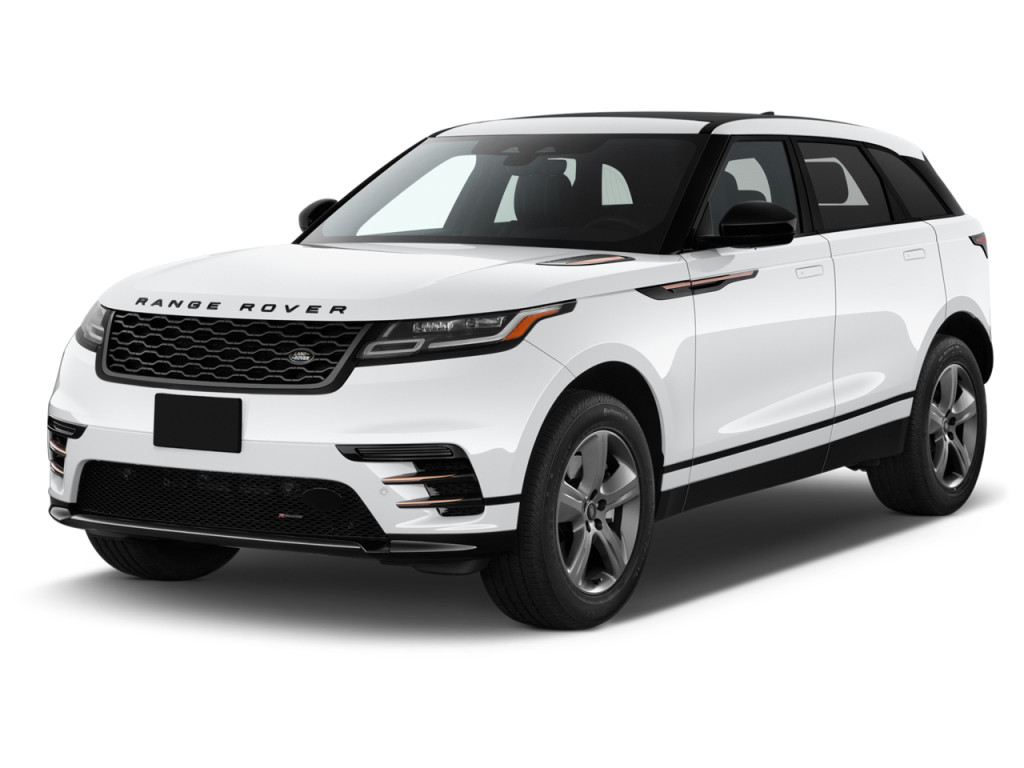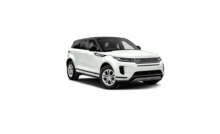2022 Land Rover Range Rover Velar Driving Programs Owners Manual




2022 Land Rover Range Rover Velar Driving Programs


Do not adjust the lower touchscreen controls, or allow the terrain response system to distract the driver, while the vehicle is moving. Driver distraction can lead to accidents, potentially causing serious injury or death.
Changing the terrain response driving programs alters various vehicle settings. For example, the engine’s revolution speed (rpm) may alter while at a constant accelerator pedal position. The suspension and steering systems may also feel heavier or lighter. The setting changes are not dramatic but are noticeable.
The comfort driving program is automatically selected each time the ignition is switched on. The previous driving program selection is not retained when the ignition is switched off. The terrain response system consists of different driving programs that can be selected to suit the current terrain and driving conditions, or the required driving style. Make sure that the correct driving program is selected for the current driving conditions or the required driving style. The Dynamic Stability Control (DSC) system operation is automatically adapted to suit the current driving program selection. See DYNAMIC STABILITY CONTROL (DSC). Further information on off-road driving, including tips and driving techniques, can be found at: www.landrover.com.
Touch the Vehicle menu soft key at the top of the lower touchscreen to display the Vehicle menu.
The lower touchscreen displays the terrain response driving program options.
Rotate the terrain response selector, located on the center console, to move through and select the required terrain response driving program. Alternatively, touch the required on-screen icon. The AUTO driving program can only be selected by pressing the rotary control down. See AUTO.
Manual selection of a terrain response driving program is not possible if the AUTO driving program is currently selected. The lower touchscreen highlights the icon for the currently selected terrain response driving program and displays a confirmation message. The instrument panel also displays the relevant icon. Information relating to the suitability of each terrain response driving program for different types of surfaces can be displayed on the touchscreen. Select the Off-Road Information menu from the 4x4i extra feature. See OFF-ROAD INFORMATION.
AUTO
Some vehicles have the AUTO driving program, which automatically determines and selects the appropriate driving program for the current terrain and driving conditions. With the terrain response selector in the elevated position, press down to select the AUTO driving program. The LED indicator lamp illuminates to confirm selection and the terrain response selector remains in the lowered position. With the terrain response selector in the lowered position, press and release to deselect the AUTO driving program. The LED indicator lamp extinguishes to confirm deselection and the terrain response selector returns to the elevated position.
COMFORT
- Select the comfort driving program when driving on-road or off-road, on surfaces that are similar to a hard road surface.
- For example, dry cobbles, tarmac, and dry wooden planks.
- The comfort driving program returns all of the vehicle’s systems to normal settings.
- Hill Descent Control (HDC) remains active if it was previously selected manually.
- Select the comfort driving program when the need for any other terrain response driving program has passed.
GRASS GRAVEL SNOW
Select the grass gravel snow program when driving on a firm surface that is covered with loose or slippery material. For deep snow and gravel, it is recommended to select the sand driving program. In the event that automatic braking system operation restricts the vehicle’s progress, switch off the Dynamic Stability Control (DSC) system. The DSC system should be switched on again as soon as the difficulty is overcome. See SWITCHING DYNAMIC STABILITY CONTROL (DSC) OFF.
MUD RUTS
- Select the mud ruts driving program for terrain that is muddy, rutted, soft, or uneven.
- Engaging the transfer box in a low range is recommended for the operation of the mud ruts driving program.
- If the mud ruts driving program and low range are selected together, the vehicle’s suspension height raises automatically.
SAND
Select the sand driving program for the terrain which is predominantly soft. For example, dry sand, deep gravel, or deep unpacked snow.
Do not select the sand driving program when driving on packed snow or ice. Selecting the sand driving program in these circumstances could result in reduced vehicle stability and braking performance, potentially leading to personal injury and vehicle damage. If the sand driving program and low range are selected together, the vehicle’s suspension height raises automatically. In the event that automatic braking system operation restricts the vehicle’s progress, switch off the Dynamic Stability Control (DSC) system. The DSC system should be switched on again as soon as the difficulty is overcome. SWITCHING DYNAMIC STABILITY CONTROL (DSC) OFF. If the current terrain is damp or wet sand and is deep enough to cause the wheels to sink, select the mud ruts driving program.
ECO
Select the ECO driving program to modify the vehicle’s settings to help reduce fuel consumption and encourage a more efficient driving style. For example, the energy consumption of the climate and comfort features is reduced and the accelerator pedal response is adjusted. Selecting the ECO driving program may automatically change some of the settings for the climate and comfort features. Deselecting the ECO driving program, or the manual adjustment of each feature overrides the automatic changes.
The possible automatic changes are as follows:
- The heated seats are switched off.
- The climate seats are switched off.
- The heated steering wheel is switched off.
- The heated windshield does not automatically switch on when the engine is started if configured to switch on via the CLIMATE SETTINGS. See CLIMATE SETTINGS.
- The auto blower speed is set to low if currently set to a high speed.
- The audio volume may also be adjusted if it is currently set to a high volume.
The ECO driving program may also make subtle changes to the rate of the cabin’s heating or cooling, and also the amount of air recirculation.
The availability of some features are dependent on the market and the specification of the vehicle. The ECO data feature consists of various information display screens that provide extra vehicle efficiency data and guidance. The ECO DATA menu is accessed via the EXTRA FEATURES menu from the touchscreen. See EXTRA FEATURES.
The ECO data feature only begins recording data after the vehicle has traveled at least 0.6 miles (1 km).
The ECO data feature only monitors the driver’s manual inputs, e.g., accelerator pedal, brake pedal, etc. Automatic inputs from the vehicle, e.g., operation of the accelerator pedal and brake pedal via the automatic cruise control, are not measured. Any data not being measured or recorded illuminates gray in the instrument panel display.
ROCK CRAWL
Select the rock crawl driving program for low-speed vehicle control when driving on extreme terrain. For example, off-road driving on uneven rocky terrain, including uneven inclines and declines. The rock crawl driving program can only be selected with the transfer box engaged in low range. If the selection is made with the transfer box engaged in the high range, the instrument panel displays a message. See SELECTING HIGH AND LOW RANGE. The vehicle’s suspension height raises automatically when the rock crawl driving program is selected.
DYNAMIC
Select the dynamic driving program to coordinate the vehicle’s control systems to contribute to a more dynamic driving experience.
The dynamic driving program is a driving style setting, rather than a terrain response setting. During manual gear selection, with the dynamic driving program selected and the transmission in Sport (S), transmission up-shifts are fully controlled by the driver. In this condition, the automatic transmission does not change up automatically, even when the engine’s revolution speed (rpm) limit is reached. The instrument panel briefly illuminates the gearshift indicator warning lamp at the recommended (up-shift) gear change point. See GEARSHIFT (GREEN).
CONFIGURABLE DYNAMICS
Do not adjust the touchscreen controls, or allow the driver to be distracted, while the vehicle is moving. Driver distraction can lead to accidents and potentially cause serious injury or death. Some vehicles have the Dynamic-i extra feature, which displays information and allows the manual selection or deselection of the dynamic setting for some vehicle systems. Select Dynamic-i from the touchscreen’s EXTRA FEATURES menu. See EXTRA FEATURES.
The last displayed Dynamic-i screen becomes the default screen when the Dynamic-i extra feature is next selected. If required, touch the setup icon (4) to display the MY DYNAMIC SETUP screen. The touchscreen displays a message if the dynamic driving program is not currently enabled.
Operate as follows:
- Pedal graph icon: Touch to display the PEDALS screen to view a graphical display for the brake and accelerator pedal operation.
- G meter icon: Touch to display the G METER screen to view the current amount and direction of G-force.
- Stopwatch icon: Touch to display the STOPWATCH screen to view live timings and split timings.
- Setup icon: Touch to display the MY DYNAMIC SETUP screen.
- My Setup soft key: Touch to enable the driver preferences for each vehicle system. The previous driver selections are retained as the default settings. Selecting the Dynamic option for each vehicle system reverts the dynamic-i feature to the Factory Setup settings.
- Factory Setup soft key: Touch to collectively select the Dynamic option for each vehicle system. Selecting the Comfort option for any vehicle system reverts the dynamic-i feature to the My Setup options.
- Displays the vehicle systems currently set to the Dynamic setting.
- Information icon: Touch to display a brief description of the Dynamic setting adjustment for each vehicle system.
- Steering soft key: Touch to select the Dynamic or Comfort setting.
- Suspension soft key: Touch to select the Dynamic or Comfort setting.
- Gear Shift soft key: Touch to select the Dynamic or Comfort setting.
- Engine soft key: Touch to select the Dynamic or Comfort setting.
DRIVER OVERRIDE OPTIONS
The Hill Descent Control (HDC) system automatically engages for some terrain response driving programs. If required, the HDC system can be manually switched off or on. The instrument panel displays the current HDC status. See HILL DESCENT CONTROL (HDC) OVERVIEW. The Dynamic Stability Control (DSC) system automatically engages after the selection of a terrain response driving program. If required, the DSC system can be manually switched off or on. See SWITCHING DYNAMIC STABILITY CONTROL (DSC) OFF.
SWITCHABLE ACTIVE EXHAUST
The active exhaust feature allows the driver to change the tone and character of the exhaust system.
Touch the icon on the lower touchscreen to select the active exhaust setting. The icon illuminates to confirm the active exhaust setting has been selected. When selected, the exhaust system emits a richer tone.
The active exhaust setting is automatically activated when the dynamic driving program is selected.
The act
SYSTEM DIFFICULTIES
Incorrect use of a terrain response driving program impairs the vehicle’s response to the current terrain. The vehicle’s suspension and transmission systems may also be damaged. A message may be displayed on vehicles fitted with the AUTO driving program if an inappropriate selection is made. If a terrain response driving program fault is detected, the instrument panel displays a warning message. The comfort driving program is automatically selected and the comfort icon illuminates on the lower touchscreen. In this event, the remaining terrain response driving programs become unavailable for selection and the respective icons illuminate gray on the lower touchscreen. If the fault is temporary and normal operation resumes, the instrument panel displays a reactivation message. The on-screen icons also resume normal illumination. In this event, the comfort driving program remains enabled, but normal operation allows the selection of the required terrain response driving program. If the fault is permanent, the instrument panel displays a warning message if a terrain response driving program selection is attempted. In this event, consult a retailer/authorized repairer. Operation of the Dynamic Stability Control (DSC) system causes the currently selected driving program’s icon to flash on the lower touchscreen. ive exhaust feature may not provide a noticeable difference in exhaust tone in all driving scenarios.
Recent Posts
VW Jetta Engine Fuse Box Diagram
Access the comprehensive 2010-2018 VW Jetta Passenger Fuse Box Diagram to troubleshoot electrical issues effectively.…
VW Jetta Passenger Fuse Box Diagram
Explore the comprehensive VW Jetta Passenger Fuse Box Diagram to troubleshoot electrical issues effectively. Understand…
2023 Ford F-150 Lightning Fuse Box Diagram
Under Hood Fuse Box Location Remove the front luggage compartment cover. Under Hood Fuse Box…
2022 Kawasaki NINJA H2 SX SE Brake Lever Adjuster Owner’s Manual
2022 Kawasaki NINJA H2 SX SE Brake Lever Adjuster Owner's Manual NOTICE Only adjust the front…
2023 Land Rover Range Rover Evoque Exiting The Vehicle Owners Manual
2023 Land Rover Range Rover Evoque Exiting The Vehicle SINGLE LOCKING WARNING Before exiting the…
2023 Land Rover Range Rover Evoque Front Seats Owners Manual
2023 Land Rover Range Rover Evoque Front Seats FRONT SEAT SAFETY Make sure to read…
